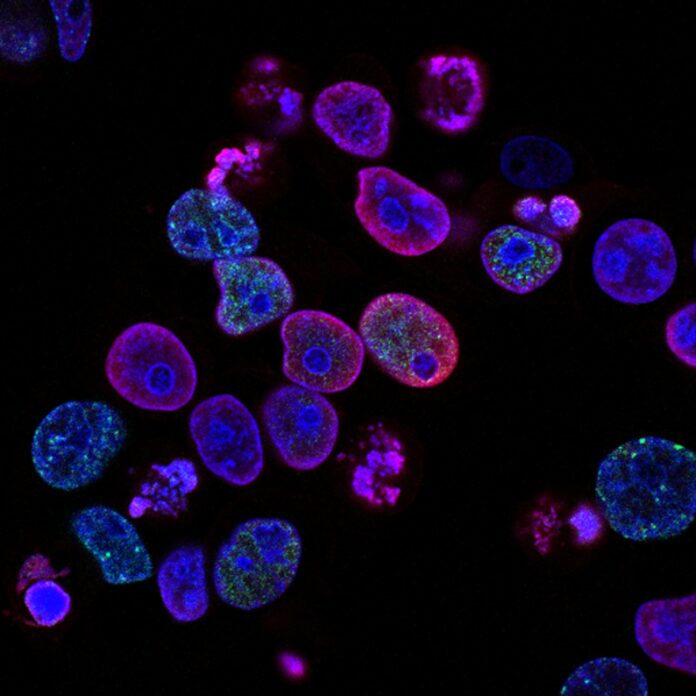Epigenetics is a fascinating field of study that explores the intricate mechanisms by which our genes are regulated and expressed. It encompasses a wide range of biological processes that go beyond the traditional understanding of genetics, providing insights into how environmental factors and lifestyle choices can shape our genetic code and influence our health and well-being. In recent years, epigenetics has emerged as a pivotal area of research, revolutionizing our understanding of gene-environment interactions and offering new avenues for the prevention and treatment of diseases.
At its core, epigenetics focuses on changes in gene expression that occur without alterations to the underlying DNA sequence. These changes can be heritable, meaning they can be passed down from one generation to the next, and yet they are reversible, making them a highly dynamic and responsive mechanism for adaptation. The term “epigenetics” itself refers to “above” or “beyond” genetics, reflecting the idea that there are regulatory mechanisms that operate above the level of the DNA sequence and can influence gene activity.
Epigenetic modifications can occur through various mechanisms, the most well-known being DNA methylation and histone modifications. DNA methylation involves the addition of a methyl group to the DNA molecule, which often leads to gene silencing, inhibiting the expression of specific genes. Histone modifications, on the other hand, involve chemical changes to the proteins called histones around which DNA is wrapped, altering the accessibility of genes and influencing their expression.
These epigenetic marks serve as a cellular memory system, allowing cells to “remember” past experiences and respond to current environmental cues. They play crucial roles in development, ensuring that different cell types in our bodies acquire distinct identities and perform specialized functions. Epigenetic changes are also involved in numerous physiological processes, including aging, immune response, and metabolism. Moreover, perturbations in the epigenetic landscape have been linked to a wide array of diseases, such as cancer, cardiovascular disorders, neurological conditions, and autoimmune disorders.
One of the most intriguing aspects of epigenetics is its potential to explain how environmental factors can influence gene expression and affect health outcomes. The field has revealed that our genes are not static entities but rather interact with the environment in a bidirectional manner. Environmental factors, such as diet, stress, toxins, and even social interactions, can leave molecular marks on our DNA and histones, altering gene expression patterns and potentially impacting our health.
For instance, studies have shown that maternal nutrition during pregnancy can have long-lasting effects on the epigenetic profiles of the developing fetus, potentially influencing the risk of diseases later in life. Similarly, exposure to environmental pollutants has been found to induce epigenetic changes that can lead to various health problems, including respiratory disorders and cancer. These findings highlight the importance of understanding the interplay between genes and the environment and underscore the potential for epigenetic modifications as biomarkers of exposure and disease risk.
In addition to providing insights into the influence of the environment on gene expression, epigenetics also offers promising therapeutic avenues. The reversible nature of epigenetic modifications has opened up the possibility of developing targeted interventions that can modify gene activity to treat diseases. Epigenetic therapies aim to either remove or restore specific epigenetic marks associated with disease, allowing for precise manipulation of gene expression and potentially reversing or mitigating the effects of various disorders.
Cancer is one area where epigenetic therapies show particular promise. Aberrant epigenetic patterns are frequently observed in cancer cells, contributing to the uncontrolled growth and spread of tumors. By targeting the epigenetic alterations specific to cancer cells, researchers are exploring novel treatment strategies that can selectively inhibit tumor growth while sparing healthy tissues. Several epigenetic drugs, such as DNA methyltransferase inhibitors and histone deacetylase inhibitors, have already been approved for the treatment of certain types of cancer, and ongoing research continues to uncover new epigenetic targets and therapeutic approaches.
While the potential applications of epigenetics are vast, there are still many challenges and unanswered questions that lie ahead. Understanding the precise mechanisms by which epigenetic modifications are established, maintained, and erased remains a complex task. Researchers are also working to develop reliable methods for detecting and analyzing epigenetic marks, as well as deciphering the intricate networks of interactions between different epigenetic modifications.
Furthermore, ethical considerations arise in the context of epigenetic research, particularly when it comes to potential interventions that could modify epigenetic marks in human germline cells, thus affecting future generations. The implications of such interventions raise profound questions about the boundaries of genetic manipulation, the concept of heredity, and the potential for unintended consequences.
Epigenetics is a rapidly evolving field that has transformed our understanding of gene regulation and its impact on health and disease. By elucidating the mechanisms by which environmental factors influence gene expression, epigenetics offers new avenues for disease prevention, diagnosis, and treatment. Its potential to uncover personalized therapeutic strategies and its implications for the concept of inheritance make epigenetics an exciting frontier of research with far-reaching implications for biology, medicine, and society as a whole.
As research in epigenetics progresses, scientists are also uncovering the role of epigenetic modifications in complex traits and behaviors. Epigenetic studies have provided insights into the interplay between genetics and the environment in shaping traits such as intelligence, personality traits, and susceptibility to mental health disorders. By understanding how epigenetic marks contribute to these traits, researchers aim to shed light on the underlying mechanisms and develop strategies for intervention and prevention.
Epigenetics has also extended its reach to fields beyond human health. It has profound implications for agriculture and food production, as epigenetic modifications can affect the growth, development, and response to environmental cues in plants and animals. Understanding the epigenetic mechanisms involved in crop traits, such as disease resistance and yield, can lead to the development of more resilient and productive agricultural systems. Similarly, in animal breeding, epigenetics can be harnessed to optimize livestock traits and enhance animal welfare.
Moreover, the field of epigenetics has spurred the development of innovative research techniques and technologies. Epigenomic profiling methods, such as DNA methylation sequencing and chromatin immunoprecipitation, enable researchers to map and analyze epigenetic modifications on a genome-wide scale. These technologies provide valuable tools for studying the epigenetic landscape in different tissues, developmental stages, and disease conditions. The integration of epigenomic data with other omics approaches, such as genomics and transcriptomics, allows for a comprehensive understanding of gene regulation and its implications.
In addition to its scientific and medical significance, epigenetics has implications for social and ethical considerations. The notion that environmental factors can leave lasting marks on our genome challenges the deterministic view of genetics and underscores the importance of creating supportive environments for healthy development. It also highlights the need for policies and interventions that address the social and environmental determinants of health and promote well-being across generations.
Furthermore, the potential applications of epigenetics raise ethical questions regarding privacy, consent, and the responsible use of epigenetic information. As technologies for epigenetic profiling become more accessible and affordable, there is a need to establish guidelines and regulations to protect individuals’ rights and ensure that epigenetic data is used responsibly and ethically.
In conclusion, epigenetics is a rapidly expanding field of research that has revolutionized our understanding of gene regulation, inheritance, and the interplay between genetics and the environment. The discovery of epigenetic modifications and their influence on gene expression has opened up new avenues for studying and potentially modulating gene activity. From disease prevention and treatment to agricultural advancements and the implications for complex traits, epigenetics has far-reaching implications across various disciplines. As scientists continue to unravel the complexities of epigenetic mechanisms and their role in health and disease, this field holds immense promise for improving human health, agriculture, and our understanding of life itself.






















